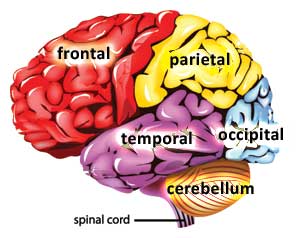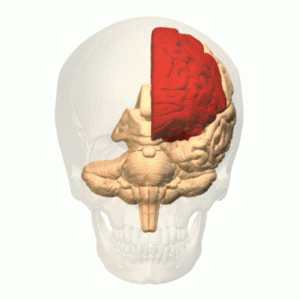 Your knowledge of your loved one’s personality is an asset
you bring to your role as a caregiver and is instrumental in helping that person deal with emotional issues. Personality is the term applied to an individual’s characteristic way of feeling, thinking and behaving. These tendencies are established
at an early age and vary only moderately from one setting to another. Shy children generally become reserved adults. People who are easy to get along with at home are usually agreeable to work with. Although people with a positive outlook on life
will certainly experience negative emotions on being diagnosed with a degenerative disease or on experiencing a traumatic injury, they are more likely to work through those emotions and become determined to make the best of things than someone who
has always been ready to see the worst in situations.
Your knowledge of your loved one’s personality is an asset
you bring to your role as a caregiver and is instrumental in helping that person deal with emotional issues. Personality is the term applied to an individual’s characteristic way of feeling, thinking and behaving. These tendencies are established
at an early age and vary only moderately from one setting to another. Shy children generally become reserved adults. People who are easy to get along with at home are usually agreeable to work with. Although people with a positive outlook on life
will certainly experience negative emotions on being diagnosed with a degenerative disease or on experiencing a traumatic injury, they are more likely to work through those emotions and become determined to make the best of things than someone who
has always been ready to see the worst in situations.
An exception to the consistent nature of personality may occur when the frontal lobe of the brain is damaged by a stroke or traumatic injury. Sometimes, depending on the location and severity of the injury, the individual undergoes a personality change. The change is not always negative; some people become more open or develop a better sense of humour. On the other hand, when your previously pleasant loved one becomes irritable, angry, intolerant or suspicious, there can be negative consequences for you both.
 The most famous case of
personality change with a brain injury was Phineas Gage (1823 – 1860). He worked for the railroad blasting rock to lay down tracks. In 1848, he had an accident which caused an iron rod to be driven through his skull, damaging the frontal lobe, as
shown in red in the animation. Before the accident, he had been described as hard-working, energetic, persistent, responsible, well-balanced and popular with the men he supervised. After his recovery, he was described as fitful, irreverent, obstinate,
capricious and self-centred. He began using profanity of the sort that shocked his former friends.
The most famous case of
personality change with a brain injury was Phineas Gage (1823 – 1860). He worked for the railroad blasting rock to lay down tracks. In 1848, he had an accident which caused an iron rod to be driven through his skull, damaging the frontal lobe, as
shown in red in the animation. Before the accident, he had been described as hard-working, energetic, persistent, responsible, well-balanced and popular with the men he supervised. After his recovery, he was described as fitful, irreverent, obstinate,
capricious and self-centred. He began using profanity of the sort that shocked his former friends.
While few people with a traumatic brain injury will have such an extensive personality change, there may be noticeable differences in behaviour patterns from what the person commonly exhibited before. Individuals who now have difficulty with executive functions (e.g., self-awareness, goal setting, self-monitoring, self-inhibiting and strategic behaviour) may have challenges in social situations.
- They may say or do things that are socially inappropriate, or act on impulses that would formerly have been suppressed, such as commenting on someone’s attire in a disparaging manner.
- They may appear self-centred by “chipping in” at inappropriate times in conversations they have followed inadequately or being unreasonably argumentative.
- They may also display an increased sexual focus in their behaviour (e.g., telling inappropriate jokes or appearing in a state of undress before others).
This type of behaviour is disturbing, particularly when caring for a spouse or parent with Alzheimer’s disease, because the personality displayed is so different from what it once was.
Caregivers can support individuals with these types of executive function limitations by using the following strategies:

- Prior to a social engagement, remind the loved one not to speak about personal matters or use inappropriate humour.
- Develop a cuing or signalling system which indicates “Stop” if the loved one demonstrates an inappropriate social behavior.
- Stay calm if something inappropriate occurs. If necessary, ask to be excused with the loved one. In a private location, provide a gentle reminder that what occurred was not appropriate. Do not become angry or overreact.
- When necessary, state assertively that inappropriate sexual innuendo or discussions in public are inappropriate and unacceptable.
- Consult an appropriate health professional if the behaviour becomes a serious problem.